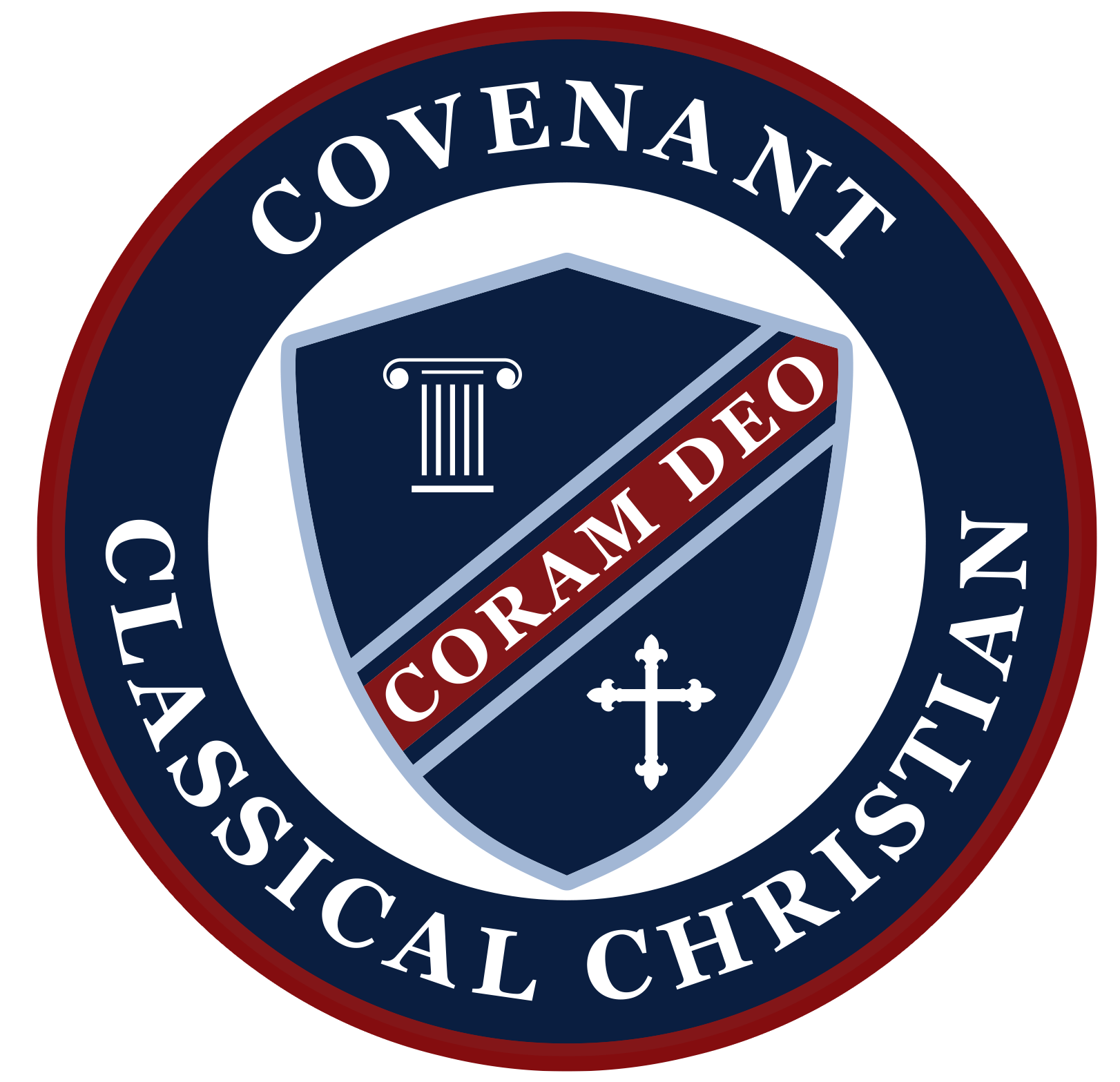Introducing Greek
Why Greek?
As Martin Luther (might have) once said,“Languages are the scabbard that contains the sword of the Spirit; they are the casket which contains the priceless jewels of antique thought; they are the vessel that holds the wine." The reformer sought to point out the importance for understanding the role of language in how we understand Scripture and its application to the world around us. But you may be wondering, “Why would we teach this to our Grammar school students? Isn’t this a language for pastors that’s learned in seminary?” While yes, Koine Greek is typically a language taught in seminary, it has also been a core of classical Christian education in America that we have forgotten. For young men growing up in the colonies, before even considering a vocation in ministry, it was expected that they had a classical education in Greek, Hebrew, and Latinbeforethey entered into seminary.1 We carry on this tradition today at Covenant Classical Christian School.
Koine Greek, which is the variation of Greek which the New Testament was written in, is used by pastors, scholars, and Christians around the world. However, Greek is not simply reserved for those in pastoral ministry. The reality is that as our students are learning Koine Greek, they are also learning the foundations upon which many languages function on. You will probably notice that English grammar and vocabulary will start to sink in in a different way with your students as they begin or continue this endeavor. Even as a Grammar schooler grows their vocabulary, they will make connections to English and the world around them that they formerly might have missed. Nouns, verbs, adjectives, and much of English grammar will fit into its place in a sentence more clearly as they learn how to use them in a different language which uses them more structurally.
Another aspect which cannot be understated is the fact that our Grammar school students will now learn a language which can practically be used throughout the rest of their lives as they study God’s Word. Their familiarity not only with Christ and His people, but also with the original language of the Gospel, can help serve to deepen their spiritual lives. The reality is that as we teach them the basics of Koine Greek, we hope that they will learn and love the original language of the Gospel and be bolstered in their knowledge that they might grow into maturity as scholars, citizens, and disciples.
How Do We Teach it?
Your student will begin by learning basic Greek vocabulary through songs, chants, and spelling. I have included one such song down below, as well as its translation. You might even recognize it as a song you sing at your church on Sunday!
| τὸν θεὸν ὡ δοξάζετε, | Praise God from whom all blessings flow |
| εὐδοκήσαντα δωρεάν, | Praise Him all Creatures here below, |
| τὰ κτίσματ᾿ ἅ πεποίηκεν, | Praise Father, Son and Holy Ghost. |
| ἀμήν. | Amen. |
Through these chants, songs, and spelling exercises, we will build up a foundation of words to be later drawn upon as they continue on in their language studies. In the same way a child learns a language through word association and hearing as they grow up as a toddler, we introduce our children to Greek in the Grammar school through the same techniques to stimulate God’s natural process for language learning.
What About Me?
You might be asking yourself, “What about me? I want to know that too!” The reality is that your child does not have to learn Koine Greek alone. As your child learns the basic vocabulary of Greek, we would love for you to come alongside them and learn with them! Included below are some of the resources we use as well as some other recommended sources for going even further than your students.
The Teacher’s Textbook: https://classicalacademicpress.com/collections/song-school-greek/products/song-school-greek-teachers-edition
The songs we use:https://classicalacademicpress.com/collections/song-school-greek/products/song-school-greek-cd-only
For those of you interested in further study (even beyond what your kids are doing) I recommend this book that is simultaneously simple and approachable. It’s not intimidating, has a simplistic and beautiful layout, and is easy to understand:
Reading Biblical Greek: A Grammar for Students by Richard J. Gibson and Constantine Campbell
We look forward to partnering with you in the education of your child, and look forward to growing as citizens, scholars, and disciples!
1. Calhoun, David B.. “The Log College,” Colonial Presbyterianism. Wipf and Stock. 48

